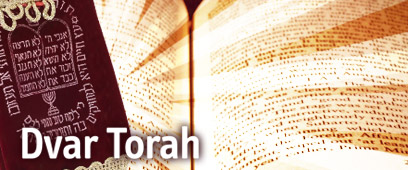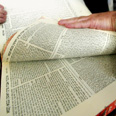

Illustration
Photo: Ata Awisat
Our parasha begins with the words: “These are the names of the sons of Israel who came to Egypt with Jacob, each coming with his household.” With those words begin the story of Israel’s sojourn in Egypt, the good life there, the subsequent enslavement, and then redemption.
The first thing that the Torah decides to relate is the names of those descending to Egypt. Why? Because we must know who accompanied Jacob, even though we are already acquainted with Jacob’s sons. A new story is about to begin, and we must be told what and whom it is about.
A name is not something arbitrary. It is a person’s designation. It is the initial basis for getting to know a person. At the very beginning, Adam is told to name the animals (Genesis 2: 19-20), because each creature is distinct. In the Torah, we see a tendency to try to explain each name.
The first woman is Eve “because she was the mother of all the living” (Genesis 3:20), and Adam is created from dust of the earth (adama). Abraham is “the father of a multitude of nations” (Genesis 17:5), and the names of Leah’s sons recount the suffering of an unloved wife. So it is with most biblical names.
We, too, experience the special process of choosing names for our children, and the responsibility of knowing that the names we choose will influence their lives.
God's name
In our parasha, we encounter another naming and its midrash. The boy who will grow to be the redeemer of Israel from Egypt is named Moses, because “I drew him out (meshitihu) of the water.” The child is reborn from the water, with the wicker basket and the water of the Nile serving as the womb of the person who will deliver Israel.
The Torah provides the midrash on the origin of the name so that we will have no doubt about the identity of the greatest of the prophets.
But the names in Shemot portion do not end here. For the first time, we encounter God’s ineffable name. Moses asks God’s name – for even a God needs a name and an identity that set Him apart from all other things. And God tells him: “‘I am who I am.’ And he said, ‘Say this to the people of Israel, I am has sent me to you.’”
And then God adds: “Say this to the people of Israel, ‘The Lord, the God of your fathers, the God of Abraham, the God of Isaac, and the God of Jacob, has sent me to you.’”
God is all, and God’s name is all encompassing. God is the eternal now. God was, is, and will be. God created all things, existed before us and will continue after us. And if that is not enough, God gives us an historical identity: He is the God that revealed Himself to our ancestors, but who has revealed his true identity only to Moses. He is our God then and always.
But what is common to us and to God is that we have names and God has a name or, perhaps, names, as the midrash tells us:
Rabbi Abba bar Memel said: The Holy One said to Moses: “You wish to know my name? I am known by what I do. Sometimes I am called El Shaddai, Zvaot, Elohim, and Adonai. When I judge mankind, I am called Elohim, and when I make war against the wicked, I am called Zvaot, and when I punish man’s sins, I am called El Shaddai, and when I show mercy for my world, I am called Adonai.” (Exodus Rabbah 3)
In other words, there are names for each of God’s aspects and attributes. And we, too, have many names in accordance with our aspects and attributes, as the midrash says: “We find that each person has three names: One that his father and mother call him, one that people call him, and one that he acquires for himself” (Midrash Tanhuma – Parashat VaYakhel).
Our parasha begins with the names of those who descended to Egypt so that we might know who they were. It continues with the name of Moses, and tells us the name of God.
We learn who they were and what they did and, ultimately, who we are as creations of the God who is the totality of being. A name is the beginning and the continuation of our existence. Therefore, let us close by recalling Zelda’s poem (based upon the midrash) “Unto every Person there is a Name”:
Rabbi Shmuel Reuven Shaish – Rabbi of the Tagel Arava congregation in Eilat















